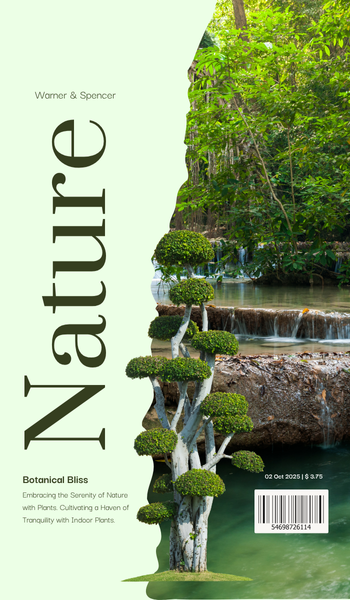ABIDJAN, Ivory Coast – “Water is life; when there is no water, it is as if there are no people living.”
These profound words from ‘Masechefo Sechefo, a Community Councilor at Ha Sekete village, capture the essence of existence in rural Lesotho before the African Development Bank’s transformative intervention.
In a country where water ironically constitutes 30% of the nation’s GDP, many rural Basotho paradoxically lived without access to clean water. This stark contradiction defined daily life until the Lesotho Rural Water Supply and Sanitation Project began changing the narrative in the communities.
The Long Walk For Water
Before the project, women and girls in villages across Maseru and Berea districts would wake before dawn to begin their daily ‘pilgrimage’ to distant springs and unprotected wells. The journey often stretched more than a kilometer each way, with women carrying heavy containers while navigating challenging mountain terrain.
“Where we used to fetch water, it was so far that there could have been challenges, perhaps the risk of being attacked or harmed by criminals,” recalls ‘Masechefo.
At Sekete Primary School, the situation was equally dire. Headteacher Sello Matlali remembers: “We had to send children to fetch water from the unprotected wells around our communities. It was about one and a half kilometers walk from the school.”
This daily expedition meant losing children’s classroom time and productive hours for women. Worse still, the unprotected water sources harbored pathogens causing diarrheal diseases that disproportionately affected the community’s most vulnerable members.
A Project That Flows Like Life Itself
When the African Development Bank’s initiative reached these communities, it didn’t merely install infrastructure – it unleashed potential.
The project, set to conclude in March 2025 after more than a decade of implementation, has delivered remarkable results: 190 kilometers of pipeline to distribution networks, water storage reservoirs with a total capacity of 3.48 million liters, and 166 public water points serving approximately 28,266 people across eight zones in Maseru and Berea districts.
The numbers tell only part of the story. Moses Tembo, the project’s task manager at the African Development Bank, highlights the impact: “From the data collected through the project, you could see that many people’s lives have been changed. Most people were drawing water from springs and unprotected wells, and the incidence of diarrheal diseases was quite high.”
Beyond water supply, the project expanded sanitation infrastructure, – constructing 266 sanitation facilities for vulnerable households and 284 toilets at schools and healthcare facilities.
“It Was Like Our Birthday”
At Sekete Primary School, the transformation has been profound. “When water was supplied, it was like our birthday,” Sello Maltali exclaims, his eyes bright with emotion. “The African Development Bank came to our rescue when we were in serious problem.”
The school now boasts eight water taps and proper sanitation facilities – eight toilets for boys, seven for girls, and a dedicated facility for children with disabilities. This thoughtful design has created an inclusive learning environment where all 500 students can focus on education rather than basic survival needs.
“We live the life we never lived before,” Matlali reflects. “We forget the past. We talk of it as history.”
The impact extends beyond convenience. The school has witnessed increased enrollment and reduced disease transmission. Students can now pursue agricultural education, which teaches them self-reliance and food production skills.
We used to have a small community tap where 2,000 people would queue, and because of the drought, we wouldn’t have enough water some days
Women Liberated, Communities Transformed
For women like ‘Masechefo, the project has delivered more than water – it has brought dignity and safety. “This project has brought a big change in our lives and our families. There is cleanliness in our homes and on our bodies.”
The transformation has touched every aspect of community life. Residents found employment during construction— collecting stones, laying bricks, mixing cement, and completing roofing work. This approach ensured that the community benefited from the completed infrastructure and the process itself.
Mamosili Kikine, the project’s technical adviser, explains: “The beneficiaries are using water for different purposes, like cooking and washing. The schools and clinics in these zones are also benefiting.”
Climate Resilience: Protecting the Future
As the base project nears completion, an additional component introduced in 2019 focuses on climate resilience. This component educates communities about preserving watersheds and forests to ensure sustainable water resources.
“Lesotho is very much dependent on water for its economy and the wellbeing of people,” task manager Tembo explains. “The water reserves 10 years ago, 20 years ago, are not the same at the moment.”
By protecting water sources through this education, the project aims to secure these life-giving resources for future generations.
Water: A Celebration of Life
As the African Development Bank joined in celebrating World Water Day on March 22, the communities served by this project understand its significance profoundly. They have experienced life with and without clean water –and know which they prefer.
“Without water, there is no life,” declares headteacher Sello Matlali. “Water shortage is death. We cannot have food. We cannot bathe. We cannot wash our hands. We are vulnerable to disease.”
The project’s legacy extends beyond pipes and reservoirs. It has fundamentally altered the relationship between communities and water – creating not just consumers but stewards of this precious resource.
For the people of Lesotho’s rural communities, water is no longer just a substance—it’s the embodiment of possibility, dignity, and future prosperity. In a country blessed with abundant water resources that benefit neighboring nations, the African Development Bank has ensured that Lesotho’s citizens can finally share in this natural wealth.
And for that, as Sello Matlali puts it, “It is very joyous.”
A Nurse’s Story
Mots’elisi Makhele, the only community health nurse serving approximately 2,000 people in her rural community, has witnessed a remarkable transformation thanks to the African Development Bank’s water supply and sanitation project.
“We used to have a small community tap where 2,000 people would queue, and because of the drought, we wouldn’t have enough water some days,” Makhele recalls, adding that this single tap served everyone—elderly women, small children, and her clinic.
The health consequences were severe. “I couldn’t do normal birth deliveries because there was no water,” said Makhele. “There was an increased rate of waterborne infections, and I had many babies with malnutrition because the water was not clean.”
The African Development Bank project transformed the community by providing individual household taps and proper sanitation facilities. The clinic received two proper toilets and a washing station where patients can wash their hands.
The impact has been profound. “After initiating this project, the incidence rate of diarrheal diseases and malnutrition has decreased,” Makhele said excitedly.
SOURCE : AFDB

















